PLENARY SPEAKERS
Prof. Jeremy Baumberg
University of Cambridge, UK
Prof. Jeremy J. Baumberg FRS, is the Harald Aspden Professor of Fundamental Physics at the University of Cambridge, directing a key UK NanoPhotonics Centre. He develops optical materials structured on the nanoscale, with strong experience at Hitachi, IBM, and his spin-offs combining academic insight with innovation. With over 47000 citations (h-111), he is a leading innovator in Nano, leading to awards including the IoP Faraday gold Medal (2017) and Royal Society Rumford Medal (2014). He is a strategic advisor on nanotechnology to the UK. His recent popular science book is “The Secret Life of Science: How Science Really Works and Why it Matters”. see np.phy.cam.ac.uk.
Talk title: Watching single molecule electrochemistry
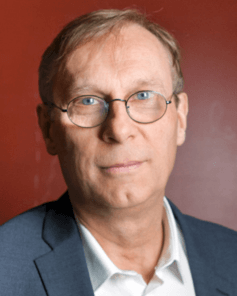
Prof. Vincent Croquette
ESPCI, France
Vincent Croquette is a CNRS Researcher in Biophysics at ENS-PSL, with David Bensimon and Jean-François Lallemand he has pioneered the use of magnetic tweezers in single-molecule studies investigating DNA, RNA elasticity under torsional constrain. Using these substrates, they characterize molecular motors such as polymerases, topoisomerase, and helicases processing their template in real time. Insights of these works and their principles may be found in the book " Single-Molecule Studies of Nucleic Acids and Their Proteins". Vincent Croquette is also the Director of ESPCI-Paris PSL.
Talk title: Coming soon
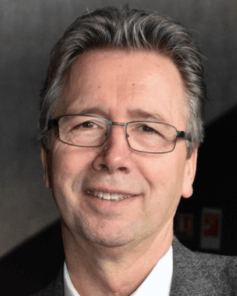
Prof. Thomas Ebbesen
Université de Strasbourg, France
Thomas W. Ebbesen is a physical chemist educated in the United States and France, receiving his bachelor’s degree from Oberlin College (USA) and his PhD from the Curie University in Paris. He then did research in both the US and Japan, most notably at NEC Corp., before returning to France in 1999 to help build a new institute (ISIS) at the University of Strasbourg. He is currently the head of the Center for Frontier Research in Chemistry and the Strasbourg Institute for Advanced Studies (www.usias.fr). He holds the chair of physical chemistry of light-matter interactions. As the author of many papers and patents, Ebbesen has received numerous awards for his pioneering research including the 2014 Kavli Prize in Nanoscience for his transformative contributions to nano-optics. Over the past 15 years, his team made the first demonstrations that chemistry and ground state material properties can be modified by coupling electronic and vibrational transitions to the vacuum electromagnetic field.
Talk Title: The Alchemy of Vacuum

Prof. Reuven Gordon
University of Victoria, Canada
Reuven Gordon is a Professor in the Department of Electrical and Computer Engineering, University of Victoria. He is a Fellow of Optica, SPIE, and IEEE. Dr. Gordon has authored and co-authored over 200 journal papers (including 15 invited contributions). He is co-inventor for eight patents. He has received a Canadian Advanced Technology Alliance Award (2001), an Accelerate BC Industry Impact Award (2007), an AGAUR Visiting Professor Fellowship (2009), the Canada Research Chair in Nanoplasmonics (2009-2019), the Craigdarroch Silver Medal for Research Excellence (2011), a Fulbright Fellowship (2016), an NSERC Discovery Accelerator (2017), the Faculty of Engineering Teaching Award (2017) and a JSPS Invitational Fellowship (2023). Dr. Gordon is a Professional Engineer of BC. He has also served as conference chair for several conferences, including SPIE NanoScience + Engineering and NFO16. Dr. Gordon is a Deputy Editor for Optics Express.
Talk title: Label-free Single-Biomolecule Sensing with Nanoaperture Tweezers
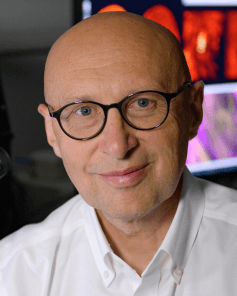
Prof. Stefan Hell
Max-Planck-Institutes, Germany
Stefan W. Hell is a director at both the Max Planck Institute for Multidisciplinary Sciences in Göttingen, and the Max Planck Institute for Medical Research Heidelberg, Germany.
Stefan W. Hell received his doctorate (1990) in physics from the University of Heidelberg. From 1991 to 1993 he worked at the European Molecular Biology Laboratory and followed with stays as a senior researcher at the University of Turku, Finland, between 1993 and 1996, and as a visiting scientist at the University of Oxford, England, in 1994. In 1997 he was appointed to the MPI for Biophysical Chemistry in Göttingen as a group leader and was promoted to director in 2002. From 2003 to 2017 he also led a research group at the German Cancer Research Center (DKFZ). Hell holds honorary professorships in physics at the Universities of Heidelberg and Göttingen.
Stefan W. Hell is credited with having conceived, validated and applied the first viable concept for overcoming Abbe’s diffraction-limited resolution barrier in a light-focusing fluorescence microscope. For this accomplishment he has received numerous awards, including the Kavli Prize in Nanoscience (2014) and the Nobel Prize in Chemistry (2014). In 2022 Hell was admitted to the “Order Pour le Mérite”. In 2023 he received the honorary medal “In Publica Commoda” of the University of Göttingen and was awarded the Werner-von-Siemens-Ring.
Talk Title: Molecule-scale resolution and dynamics in fluorescence microscopy
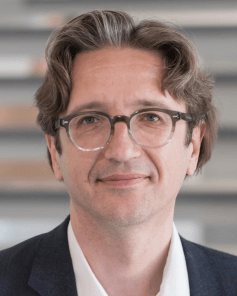
Prof. Fedor Jelezko
Institutsdirektor Universität Ulm
Fedor Jelezko is Director of the Institute of Quantum Optics and Director of the Centre for Integrated Quantum Science and Technology (IQST) at the University of Ulm. He studied in Minsk (Belarus) and received his PhD in 1998. After receiving habilitation at the University of Stuttgart in 2010, he was appointed Professor of Experimental Physics at the University of Ulm in 2011. His research interests lie at the interface between fundamental quantum physics and the application of spin qubits in diamond for information processing, communication, sensing and imaging.
Talk Title: Quantum sensing at nanoscale enabled by diamond spin qubits
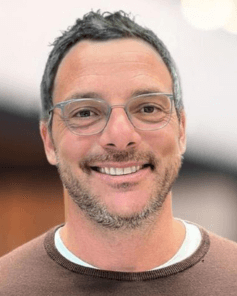
Prof. Philipp Kukura
University of Oxford, UK
Philipp Kukura is Professor of Chemistry and Fellow of Exeter College at the University of Oxford. He received an MChem from the University of Oxford (2002) and a Ph.D. from the University of California, Berkeley (2006). After postdoctoral work at ETH Zurich, he joined the Chemistry Department at the University of Oxford as Research Fellow (2010) before becoming a Lecturer (2011), and promotion to full Professor (2016). Honours and awards include the Klung- Wilhelmy Science award in Chemistry (2018), the Blavatnik Award for Young Scientists UK in Chemistry (2019), the Emil Thomas Kaiser Ward by the Protein Society (2022) and the Sackler International Prize in Biophysics (2023). He is the founder of Refeyn Ltd, which has commercialised and thereby enabled broad access to Mass Photometry. His current research focusses on the application of light microscopy combined with mass measurement at the single molecule level to study biomolecular structure and interactions.
Talk Title: Towards quantitative and universal single molecule biophysics with mass photometry
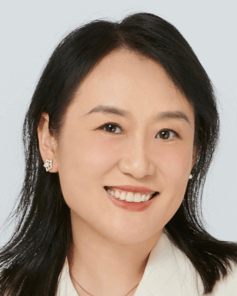
Prof. Laura Na Liu
University of Stuttgart, Germany
Prof. Laura Na Liu received her Ph.D in Physics at University of Stuttgart, Germany. She then worked as a postdoctoral fellow at the University of California, Berkeley and as a Texas Instruments visiting professor at Rice University, respectively. Before she became a professor at the Kirchhoff Institute for Physics at University of Heidelberg in 2015, she had worked as an independent group leader at the Max-Planck Institute for Intelligent Systems. In 2020, she joined University of Stuttgart and became the Director of the 2. Physics Institute.
Talk title: Shape matters: morphology remodeling and membrane channel formation in synthetic cells via reconfigurable DNA nanorafts
Prof. Aleksandra Radenovic
Ecole Polytechnique Fédérale de Lausanne, Switzerland
Prof. Aleksandra Radenovic is a full professor of biological engineering at the École Polytechnique Fédérale de Lausanne (EPFL) and head of the Laboratory of Nanoscale Biology. Her lab works in the research field that can be termed single-molecule biophysics. She has received her Ph.D. in Biophysics from the University of Lausanne (Switzerland) in 2003 and a Msc. in Physics from the University of Zagreb (Croatia) in 2000. In 2010. she received a European Research Council
(ERC) Starting Grant in 2010 and SNF Backup scheme Consolidator Grant (2015). She is also the recipient of the CCMX materials challenge award in 2016 and the Advanced ERC (2020) grant. She develops techniques and methodologies based on optical imaging, bio-sensing and single-molecule manipulation with the aim to monitor the behavior of individual biological molecules and complexes in vitro and in live cells.
Talk title: Lumen charge governs memristive ion transport in β-barrel nanopores
Dr. Brian Reed
Quantum-Si, USA
Brian Reed, Ph.D. is a distinguished scientist and the Head of Research at Quantum-Si, where he has been at the forefront of innovation in proteomics. Dr. Reed and his team at Quantum-Si developed a groundbreaking technology for single-molecule protein sequencing, leading to the commercial launch of Platinum, the world’s first next-generation protein sequencing platform, in 2023. Prior to joining Quantum-Si in 2014, Dr. Reed developed methods and applications for semiconductor-based DNA sequencing as an R&D Group Leader at Ion Torrent (acquired by ThermoFisher in 2013). He earned his BA in Biology at Harvard University and went on to earn his Ph.D. in Molecular Biology from Yale University.
Talk title: Beyond the Genome: Unlocking Proteomic Discoveries with Quantum-Si’s Next-Generation Protein Sequencing Technology
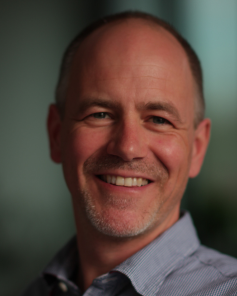
Prof. Philip Tinnefeld
Ludwig-Maximilians-Universität München, Germany
Philip Tinnefeld is professor for physical chemistry at LMU Munich. For more than 15 years, he has led an interdisciplinary research group in single molecule spectroscopy, super-resolution microscopy, DNA nanotechnology and biosensing with a focus on method development. He has contributed to breakthroughs in super-resolution microscopy with the techniques dSTORM, DNA-PAINT and pMINFLUX. Recently, he combined single-molecule detection with DNA nanotechnology to develop self-assembled functional devices. In addition to more than 190 peer-reviewed publications, he is involved in 10 patent applications and is initiator of GATTAquant GmbH.
Talk title: Subnanometer Resolved and Multilevel Molecular Logics Single-Molecule Sensing
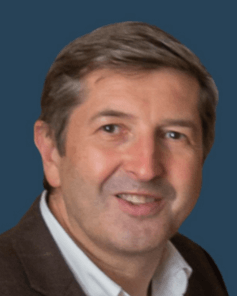
Prof. Ronald Walsworth
University of Maryland, USA
Ronald Walsworth is a Professor of Physics and of Electrical and Computer Engineering at the University of Maryland (UMD); and Founding Director of the UMD Quantum Technology Center. He received his PhD in Physics in 1991 from Harvard University and later served on the Harvard faculty for about 20 years. His research interests are in developing precision measurement tools and applying them to diverse problems across the physical and life sciences. He has also co-founded several technology companies in areas ranging from biomedical imaging to quantum sensing.
Talk Title: NMR/MRI at the Nano and Micro-Scale using Quantum Diamond Sensors
INVITED SPEAKERS
Dr. Patricia Bassereau
Institut Curie, France
Patricia Bassereau is CNRS Research Director at Institut Curie (Paris) and leads the group "Membranes and cellular functions". She obtained a PhD in Soft Matter in Montpellier where she started her carrier on the structure of self-assembled surfactant-based systems. After a year at IBM Almaden Center (San Jose, USA), she moved to Institut Curie in 1993 to work on "Physics of the Cell" and cell membranes. In 2015 she received the Suffrage Science Award (Royal Society, UK), in 2017 the Emmy Noether Distinction for Women in Physics (EPS), she is Fellow of the Biophysical Society since 2018 and Elected EMBO Member since 2020. For her research, she develops a multidisciplinary approach, largely based on synthetic biology and biomimetic systems, as well as quantitative mechanical and microscopy methods to understand the dynamics, the organization and the mechanics of biological membranes.
Talk Title : Membrane mechanics affects transmembrane proteins’ dynamics and function
Dr. Laurent Cognet
Institute of Optics Bordeaux, France
Laurent COGNET is Research Director at CNRS and Principal investigator in nano&biophotonics at the Institute of Optics – University of Bordeaux, France. He is also the director of the Laboratory for Photonics, Digital Sciences and Nanoscience in Bordeaux. He obtained his PhD in 1999 in cold atom physics from the Université Paris-Saclay under the supervision of Alain Aspect, after which he turned to the field of nano&biophotonics with a Marie Skłodowska Curie postdoctoral fellowship at the University of Leiden (NL) in Thomas Schmidt’s group.
His current research focuses on the spectroscopy of single nanostructures, in particular SWIR-emitting single-walled carbon nanotubes, the design of new approaches in super-resolution microscopy, and the study of molecular diffusion processes in complex environments with a view to their application to neuroscience as part of an ERC SYNERGY project. He has published over 110 articles in leading international journals and has received several awards for his achievements.
Website: www.cognet-research.com
Talk Title : Single-molecule localization microscopy of & with SWIR emitting nanoparticles to probe nanoscale environments in biological tissue.

Prof. Andreas Dahlin
Chalmers University of Technology, Sweden
Andreas Dahlin has worked on several interdisciplinary projects involving chemically modified nanostructures, with applications such as bioanalytical sensors and protein purification technologies. He has worked mainly at Chalmers University of Technology, but did most of his PhD work at Lund University (2004-2007) and a postdoc at ETH Zürich (2009-2011). His group is specialized in novel chemical surface functionalization methods, in particular polymer brushes. He is currently focusing on developing new trapping methods based on nanopores modified with polymer brushes. The long term goal is to study protein interactions and oligomerization with extended observation times while the proteins are under non-invasive conditions.
Talk Title : Nanopores with polymer brushes for long-term non-invasive trapping of proteins
Prof. Jörg Enderlein
Georg-August-Universität Göttingen, Germany
Jörg Enderlein has studied physics in Odesa (Ukraine) between 1981 and 1986. He obtained his PhD at Humboldt-University in Berlin (Germany) in 1991 for his research on non-linear reaction diffusion systems. After his PhD, he joined PicoQuant GmbH in berlin as a research scientist, where he was involved in the development of technology for single-molecule fluorescence detection and spectroscopy. After his PostDoc with the group of Dick Keller at the Los Alamos National Laboratory (USA), he became an assistant professor at Regensburg University (Germany) in 1997. In 2001, he became a Heisenberg Fellow of the German Research Council and a group leader at the Forschungszentrum Jülich, Germany’s largest research institution. In 2007, he became full professor for Biophysical Chemistry at the Eberhard Karls University in Tübingen, and since 2008, he is full professor for Biophysics at the Georg August University in Göttingen. His research interests are single-molecule fluorescence spectroscopy, super-resolution fluorescence microscopy, and nano-optics and plasmonics.
Talk title: Coming soon
Prof. María García-Parajo
ICFO, Spain
María García-Parajo is an ICREA Research Professor at ICFO – Institute of Photonic Sciences, leading the Single Molecule Biophotonics group. Her research focuses on the development of advanced optical techniques to the study of biological processes at the single molecular level on living cells. She obtained her PhD in Physical Electronics in 1993 at Imperial College, UK. Previous experience includes research at L2M- CNRS Paris (FR) and University of Twente (NL). To date she has published more than 200 publications and delivered more than 250 talks at international conferences and workshops upon invitation. She coordinates several international research projects, and is member of various international scientific advisory, executive and editorial boards. She has received several prestigious awards, including National Prize in Biophysics (2017), Advanced ERC grant (2017) and Emmy Noether Laurate from the European Physical Society (2020). She is co-coordinator of the Winter School in Advanced Microscopy Techniques for the Master in Interdisciplinary Sciences at BIST and is actively involved in (inter)national actions to promote gender equity in Science.
Talk Title: Resolving individual multi-molecular interactions in living cells
Prof. Randall H. Goldsmith
Department of Chemistry, University of Wisconsin-Madison, USA
Randall Goldsmith is the Helfaer Professor of Chemistry and an affiliate of the Department of Electrical and Computer Engineering at the University of Wisconsin Madison. He completed undergraduate degrees in chemistry and biology at Cornell University, received his Ph.D at Northwestern University, and performed postdoctoral work at Stanford University, where he became profoundly convinced that molecules deserve to be looked at one at a time. At UW Madison he runs an interdisciplinary group of chemists, physicists, and biophysicists, with research interests spanning single-molecule spectroscopy, micro and nanophotonics, chemical catalysis, photochemistry, and biophysics. His work has been recognized with a DARPA young faculty award, NSF CAREER award, Alzheimer’s Association Young Faculty Award, Dreyfus Teacher-Scholar Award, and Journal of Physical Chemistry Lectureship Award. He was recently designated a Schmidt Futures Polymath.
Talk Title : Label-Free Detection and Hydrodynamic Profiling of Single Solution-Phase Molecules using Optical Microcavities
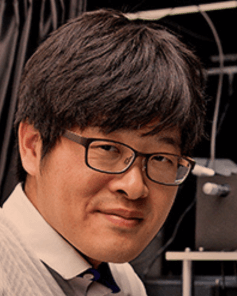
Prof. Chirlmin Joo
Delft University of Technology, Netherlands
Chirlmin Joo, a professor specializing in single-molecule biophysics at TU Delft, is dedicated to unveil groundbreaking insights into the intricate relationship between sequence, structure, and function in biomolecules. For over a decade, he has spearheaded innovative research at the intersection of biophysics and nanotechnology. Through a new technique developed by his group, Single-molecule Parallel Analysis for Rapid eXploration of Sequence space (SPARXS), millions of sequences are dynamically explored, revealing sequence-dependent biophysical and biochemical properties at the single-molecule level. His research is supported by prestigious grants such as ERC and NWO.
Talk title : Single-molecule structural and kinetic studies across sequence space
Prof. Ulrich Keyser
University of Cambridge, UK
Ulrich Keyser was appointed as Assistant Professor in 2007 and is now Professor of Applied Physics at the Cavendish Laboratory, University of Cambridge. His research group consists of 15 members working on elucidating the physics of membrane transport, controlling molecules in nanopores, mimicking, and understanding protein channels. His experimental group uses single molecule techniques, nanopore sensing, DNA (origami) self-assembly, optical tweezers and microfluidics. He was awarded an ERC Starting Grant 2010-2015 and ERC Consolidator Grant (2015-2021). Currently, his lab is working on integrating RNA:DNA nanotechnology with solid-state nanopore based single-molecule biosensing for DNA data storage, studies of RNA structure, and disease detection. Web: www.keyserlab.org
Talk title: Identification of RNA molecules using DNA nanotechnology
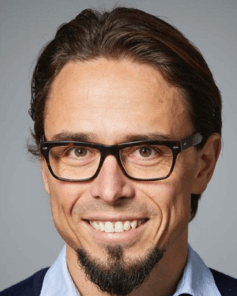
Prof. Christoph Langhammer
Chalmers University of Technology, Sweden
Christopher Langhammer is Professor of Chemical Physics at Chalmers University of Technology in Göteborg, Sweden. He received his M.Sc. from ETH Zürich in 2004 and his PhD from Chalmers in 2009. His research combines advanced nanofabrication of nanostructured materials and devices, and next generation optical microscopy, with nanofluidics, surface physics, catalysis and sensor science. He is co-founder of Insplorion AB that commercialises plasmonic hydrogen sensors, and of Envue-Technologies AB that brings Nanofluidic Scattering Microscopy to the market.
Talk Title : Nanofluidic Scattering Microscopy and Spectroscopy of Single Nano-Objects
Prof. Jan Lipfert
Utrecht University, Netherlands
Prof. Michael Mayer
University of Fribourg, Switzerland
Michael Mayer is Professor of Biophysics at the Adolphe Merkle Institute of the University of Fribourg in Switzerland. He received a Ph.D. in biophysical chemistry with Horst Vogel at the Swiss Federal Institute of Technology in Lausanne (EPFL), followed by postdoctoral research with George M. Whitesides at Harvard University. In 2004, he started a faculty position in Biomedical Engineering and later in Biophysics at the University of Michigan. In 2015, his group moved to the University of Fribourg, where he is currently the vice-director of the Adolphe Merkle Institute. His research takes inspiration from nature to solve problems in biophysics, ranging from understanding signaling and transport processes in biological membranes to characterizing protein complexes relevant to neurodegenerative diseases and to engineering biocompatible electrical power sources.
Talk Title: Interrogating Single Proteins with Plasmonic Optical Tweezers: Opportunities and Challenges
Dr. Peter Zijlstra
Department of Applied Physics, Eindhoven University of Technology
Peter Zijlstra is an associate professor of Molecular Plasmonics at Eindhoven University of Technology. He develops approaches for single-molecule sensing using plasmonic, nanophotonic and fluorescent approaches. His research group combines concepts from nanophotonics, super-resolution microscopy and electromagnetic modelling to develop novel optical sensing concepts and study biomolecular processes.
Talk Title : Single-molecule plasmon sensing across timescales
